Events & Exhibits
2019 Research Data Management Conference

1230 York Ave, New York, NY
Research Data Management (RDM) is an increasingly prominent topic within the academic research community. Many institutions are beginning to implement RDM policies and programs, while others are taking a more measured approach by addressing stakeholder needs on a case-by-case basis.
In order to advance RDM scholarship, Rockefeller University, Weill-Cornell Medicine and Elsevier are collaborating to offer a symposium in New York City focused on Research Data Management (RDM) in academic institutions. This event will serve as a platform to explore implementation and best practices associated with successful RDM policies and programs.
We hope to see you in New York! If you have any questions, please contact Doug Feldner, Marketing Development Manager, Elsevier at d.feldner@elsevier.com.
Confirmed speakers include:
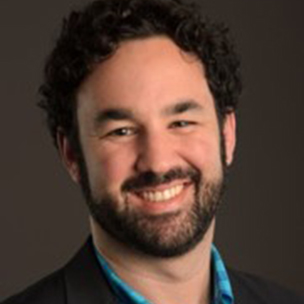
Jason Gerson
Senior Program Officer, Clinical Effectiveness and Decision Science, PCORI
Jason Gerson, PhD, is Senior Program Officer for the Clinical Effectiveness and Decision Science program at the Patient-Centered Outcomes Research Institute (PCORI). He is responsible for providing intellectual and organizational leadership in setting strategic directions, both for the methodological work PCORI funds and the advancement of the science of patient-reported outcomes (PROs); designing and implementing new initiatives to ensure the methodological rigor of the clinical research PCORI funds; and leading PCORI’s initiatives on open science, including the development and implementation of a data management and data sharing policy.
Abstract of Presentation:
As a funder of clinical research and “research done differently,” PCORI has made an organizational commitment to open science. A core expression of that commitment has been the development and implementation of its Policy on Data Management and Data Sharing, which went into effect in 2018. This talk will address the considerations and challenges that informed the policy, as well as some of the lessons learned to date.
Presentation (.pdf)
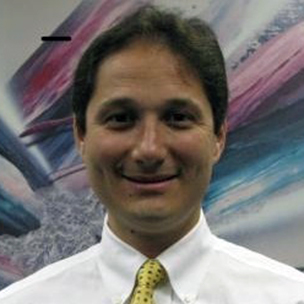
Andrew White
Library Director, Rensselaer Polytechnic Institute
Dr. Andrew White has 30+ years of experience in academic libraries including public and technical services, as well as information systems administration. He is currently the Director of Library Information Services at Rensselaer Polytechnic Institute in Troy, NY. Prior to coming to Rensselaer, he was the Associate Chief Information Officer and Senior Director for Research Computing at Stony Brook University. From 2013 until 2016, he held a faculty position in the Department of Biomedical Informatics, working with teams on various healthcare data analytics projects.
Starting in July 2009, Andrew served as the Director of Stony Brook’s Health Sciences Library, as was named as Stony Brook’s Interim Director of Libraries and Dean of Library Services in December that same year. Andrew came to Stony Brook University from serving as an Associate Dean at Adelphi University Libraries. Before his tenure at Adelphi he held a variety of positions in Stony Brook University libraries.
Andrew holds degrees in library science from Queens College and music from Stony Brook University and the City University of New York. He has contributed articles to the Encyclopedia of Library and Information Science, Computers in Libraries, LCATS, and The Electronic Library. Dr. White is also co-author of E-metrics for Library and Information Professionals, published in both the USA and UK, and translated into Russian. Andrew was a UCLA Senior Fellow and has been a member of the American Chemical Society Publications Customer Advisory Panel. He is currently a member of advisory boards for Elsevier and EBSCO.
Abstract of Presentation:
One challenge faced by universities like Rensselaer is developing and implementing simple solutions to ensure that researchers can find each other’s research in the various data silos in the ecosystem (i.e. assigning appropriate ontologies, metadata, researcher associations). Some institutions have established internal repositories, which have their own limitations. At the same time, various external repositories, like PubMed or arXiv.org, have grown with their own set of data and storage/retrieval options, and many scholarly publishers now offer services to deposit and reference research data sets in conjunction with article publication.
Our proposed model does not create a centralized institutional repository, and it does not dictate where Rensselaer researchers should place their research data. Rather, the project gathers and organizes information about publications and research data to assist other researchers in finding the information wherever it is.
Presentation (.pdf)

Wouter Haak
Vice President, Research Data Management, Elsevier
Wouter Haak heads research data solutions at Elsevier. Formerly, he was responsible for Scopus, ScienceDirect and Mendeley product strategy. Both roles share the core focus on delivering tools that improve research outcomes. In the area of data, use and re-use is increasingly important. This goes beyond the availability of data — it is about data normalization, discoverability, trust, credit and overall integration. The future of research is about the ability to better share data where all stakeholders benefit.
Prior to joining Elsevier, Wouter had an extensive background in product and strategy roles. He had online experience working for more than five years at eBay Classifieds (Marktplaats.nl, Kijiji.it) in roles varying from business development to overall responsibility for the classifieds businesses in Italy, France, Belgium and Turkey. He developed strategy experience from his seven-year tenure at the Boston Consulting Group for seven years. Finally, Wouter has also worked for two start-up/early-stage tech companies. His role has always been to bridge the understanding between the customer, end user and technical opportunities.
Wouter’s academic experience and interest was mostly in a “consuming” mode: obtaining degrees in classical music composition, computer science and business economics. His contributions to the world of publications are rather modest: one publication and one patent.
Abstract of Presentation:
Institutions, funding bodies, and national research organizations are pushing for more data sharing and FAIR data. In many places, this has led to extra bureaucracy without clear benefits for the researcher, nor for the system of research. Is research really getting better if we share our data? The answer is a resounding ‘yes’, but then we better make sure that we can better track where the data ends up, and that we shouldmake sure that the additional burden on the researcher, as well as on the institutions are well thought through. So why is getting credit for your data so much harder?
Presentation (.pdf)

Jean Shipman
MSLS, Vice President – Global Library Relations, Elsevier
Jean P. Shipman, MSLS, AHIP, FMLA, is the VP, Global Library Relations for Elsevier. Prior, she was the Executive Director, Knowledge Management and Spencer S. Eccles Health Sciences Library; Director of the MidContinental Region and National Training Office of the National Network of Libraries of Medicine; Director for Information Transfer, Center of Medical Innovation; and Adjunct Faculty, Department of Biomedical Informatics, School of Medicine; all at the University of Utah. She has also been employed by the John Hopkins University, University of Maryland, University of Washington and Virginia Commonwealth University. She served as president of the Medical Library Association for 2006-2007 and on the Board of Directors for the Society for Scholarly Publishing from 2013-2016. She was co-chair of the Chicago Collaborative, a group who met to discuss issues regarding scholarly communications. She has also authored many journal articles, book chapters, edited two books and given numerous professional presentations.
Abstract of Presentation:
The Research Data Management Librarian Academy (RDMLA) is a free online professional development program for librarians, information professionals, researchers, and other professionals who work in a research-intensive environment throughout the world. RDMLA features a unique partnership between a LIS academic program, academic health sciences and research libraries, and Elsevier. This panel will share details about the RDMLA, and how it offers a convenient RDM learning opportunity. We will present RDMLA’s development from the perspectives of recipes for success, challenges faced, and lessons learned in leading this community-driven, multi-institutional collaborative effort. Future directions and visions for the RDMLA will be shared.
RDMLA Panel Presentation (.pdf)

Rong Tang
Associate Professor & Director of SLIS PhD Program, Simmons University
Rong Tang is an Associate Professor at the School of Library and Information Science, College of Organizational, Computational, and Information Sciences, Simmons. Her research interests center on usability and UX research, mobile news information behavior, research data management services, and open government data. Published in top-ranked journals, Rong Tang teaches primarily in areas of usability, digital information searching, evaluation of information services, theories of information science, and research methods.
Rong Tang is the founding Director of Simmons Usability Lab. She serves as the Director of the PhD Program at SLIS. Rong has received multiple grants including a WGBH subcontracted grant from NEH (National Endowment of the Humanities) and an IMLS grant on developing interprofessional informationist (IPI) post-master’s certificate program. Rong Tang is one of the Co-Leaders for the RDMLA project. She is currently running usability test sessions on RDMLA.
Professionally, Rong Tang serves as the Director for External Relations, Association for Library and Information Science Education (ALISE) from 2017 to 2020.
Abstract of Presentation:
The Research Data Management Librarian Academy (RDMLA) is a free online professional development program for librarians, information professionals, researchers, and other professionals who work in a research-intensive environment throughout the world. RDMLA features a unique partnership between a LIS academic program, academic health sciences and research libraries, and Elsevier. This panel will share details about the RDMLA, and how it offers a convenient RDM learning opportunity. We will present RDMLA’s development from the perspectives of recipes for success, challenges faced, and lessons learned in leading this community-driven, multi-institutional collaborative effort. Future directions and visions for the RDMLA will be shared.
RDMLA Panel Presentation (.pdf)

Elaine Martin
Director and Chief Administrative Officer, Countway Library
Harvard University
Elaine Martin joined the Countway Library as the Director and Chief Administrative Officer in 2016. Under her direction she oversees and manages a complex organization with a $12 million budget and one of the largest collections of both current medical research materials and historical and rare collections in the world, holding more than 630,000 volumes. The Countway Library serves both academic and practicing physicians at Harvard Medical School, the Harvard T.H. Chan School of Public Health, the Harvard School of Dental Medicine and the Massachusetts Medical Society.
Previously, Elaine was employed with the Lamar Soutter Library at the University of Massachusetts Medical School in Worcester, where she had been the Director of Library Services leading the library there through a period of transformational change. She also served as the Director of Library Services of the National Network of Libraries of Medicine, New England Region. In 2018 Elaine was selected as the Janet Doe lecturer. This prestigious award recognizes a member of the Medical Library Association who have made substantial contribution to its work through leadership, impact on medical librarianship as a profession and effectiveness to teaching and training. Also in 2018 Elaine was selected to be a Fellow of the Medical Library Association. Elaine has her MSLS from Catholic University and her Doctor of Arts (DA) from Simmons University. She has taught numerous classes and published in the areas of medical librarianship, library administration and management and scientific research data management.
Abstract of Presentation:
The Research Data Management Librarian Academy (RDMLA) is a free online professional development program for librarians, information professionals, researchers, and other professionals who work in a research-intensive environment throughout the world. RDMLA features a unique partnership between a LIS academic program, academic health sciences and research libraries, and Elsevier. This panel will share details about the RDMLA, and how it offers a convenient RDM learning opportunity. We will present RDMLA’s development from the perspectives of recipes for success, challenges faced, and lessons learned in leading this community-driven, multi-institutional collaborative effort. Future directions and visions for the RDMLA will be shared.
RDMLA Panel Presentation (.pdf)

Peter Oxley
Associate Director, Research Service, Samuel J. Wood Library, Weill Cornell Medicine
Peter Oxley, PhD, is the Associate Director of Research at the Samuel J. Wood Library, Weill Cornel Medicine, New York. His primary responsibilities are to manage the Data Core, the library bioinformatics service, and the scientific software hub. The Data Core is a secure enclave computing environment for storing and analyzing research data, including protected health information. The Data Core is also developing a data catalog to manage data discoverability, accessibility, and governance. The bioinformatics service provides workshops, seminars and consultations on bioinformatics and data science analysis to staff, faculty and students. Our scientific software hub is a centralized software information and license request service for the medical college.
Abstract of Presentation:
There is a natural tension between confidential-data security, and increasing research findability, accessibility, interoperability, and reproducibility (or “FAIRness”). Dr Oxley will describe how the Weill Cornell Medicine Data Core manages this tension to maximize the value of research data.
Presentation (.pdf)

Tom Campion
Associate Professor of Research in Healthcare Policy and Research
Weill Cornell Medicine
Thomas R. Campion, Jr., Ph.D. leads Weill Cornell Medicine’s efforts to support clinical and translational investigators with electronic patient data, especially through the secondary use of electronic health record (EHR) data. Dr. Campion is Associate Professor of Research in Healthcare Policy & Research in the Division of Health Informatics. As Director, Research Informatics in the Information Technologies & Services Department (ITS) and Director, Biomedical Informatics in the Clinical & Translational Science Center (CTSC), he leads the Architecture for Research Computing in Health (ARCH) program, which matches scientists with tools and services for obtaining electronic patient data. His research interests include electronic infrastructure to support clinical and translational scientists, measurement of the biomedical research enterprise, computable phenotyping, clinical decision support, health information exchange, and organizational issues in informatics. He earned a master of science and doctor of philosophy in biomedical informatics from Vanderbilt University and a bachelor of arts in organizational studies and German from the University of Michigan.
Abstract of Presentation:
Obtaining electronic patient data for research is challenging due to complex socio-technical issues. In this talk, Dr. Campion will describe Weill Cornell Medicine’s approach to overcoming barriers to support investigators with data from electronic health record systems.
Presentation (.pdf)

Mike Huerta
Associate Director, US National Library of Medicine
Director, Office of Strategic Initiatives, NLM, NIH
Dr. Huerta is Associate Director of the NLM and Director of the NLM’s Office of Health Information Programs Development. His office coordinates efforts to make the NLM’s considerable resources known to librarians, researchers, health care providers, and the general public; it oversees the Library’s international efforts as well as NLM’s evaluation and strategic planning activities. Since 1991, he has led several transformational efforts at NIH. These include promoting team and collaborative science through the NIH Roadmap’s Interdisciplinary Research Consortia, NIH Blueprint (http://neuroscienceblueprint.nih.gov/), and the NIH’s adoption and mainstreaming of multiple principal investigators on individual projects. He has also led many informatics and data-intensive research initiatives, starting with the Human Brain Project, which helped develop the field of neuroinformatics. More recently, he led the Human Connectome Project (http://www.humanconnectome.org/), which will provide comprehensive and systematic data about the connectivity of the human brain from some 1,200 healthy adults, and he directed the National Database for Autism Research (http://ndar.nih.gov/), which serves as a data repository and collaborative research platform for studies of autism. Today, Dr. Huerta is involved with a number of trans-NIH and trans-government efforts on standards, technologies, practices, and policies to more widely, efficiently, and meaningfully share biomedical research data. He is helping to lead the NIH Big Data to Knowledge (BD2K) initiative, which will support research and development in the area of data science and associated technologies (http://bd2k.nih.gov). Importantly, BD2K will also work to change policies and practices at NIH to raise the prominence of data in the biomedical research enterprise by increasing data sharing, supporting community-based standards efforts, and making data sets discoverable, citable, and linked to the scientific literature.
Presentation (.pdf)

Nicole Contaxis
Project Lead, NYU Data Catalog, Health Sciences Library, NYU Langone Health
Nicole Contaxis is the Lead for the NYU Data Catalog and is a member of the Data Services Team at the NYU Health Sciences Library. Before joining the NYU Health Sciences Library, she was the National Digital Stewardship Resident at the National Library of Medicine. She received her MLIS from UCLA and is currently pursuing an MA in Bioethics at NYU.
Abstract of Presentation:
The NYU Data Catalog is an open source tool that provides a low-barrier approach to institutional data discovery and helps uncover high-value datasets that may otherwise be undiscoverable. The eight institutions that have implemented the NYU Data Catalog formed a collaboration to improve metadata, develop outreach strategies, and improve the functionality of the software. Recently, our collaboration expanded to include institutions that do not use the NYU Data Catalog software but are engaged in work centered on data discovery. This tool-agnostic group, the Data Discovery Collaboration Project, aims to capitalize on our shared expertise and experience with data-driven research communities to increase the visibility of data, address data sharing obstacles by informing policy and improving workflows, and continue to learn from our research communities through structured investigations and use cases. As a collaborative, we aim to address issues related to data discovery as one step in the process of improving the data sharing environment.
Presentation (.pdf)
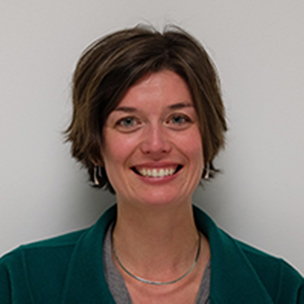
Allyson Evans
Editor-in-Chief, Cell Metabolism
Allyson received her Ph.D at the University of North Carolina, Chapel Hill examining the intersection of metabolism and cell death, and did postdoctoral work at Massachusetts Institute of Technology in the aging field. She joined Cell Press in 2010 as an editor at Molecular Cell, and in 2019 joined the Cell Metabolism team as Editor-in-Chief.
Abstract of Presentation:
Publishers sit squarely in the middle of calls for improved scientific data reproducibility and replicability. Commercial publishers, academic societies and university presses are tasked with providing datasets with peer-reviewed articles. During this panel, members of the publishing industry will share their perspective on forces driving the need for dataset storage and shareability. Industry experts will compare solutions for including datasets with published articles. The panel will also look at the future of scientific data requirement and how it may change the nature of published scientific articles.

Sara Rouhi
Director, Strategic Partnerships, Public Library of Science (PLOS)
Sara Rouhi is the Director of Strategic Partnerships at PLOS focusing on developing new business models for sustainable, inclusive open access publishing. She previously managed business development at Digital Science for both the Altmetric and Dimensions platforms. She is a member of SSP’s Education Committee and ALPSP’s North American Steering Committee, and she co-founded the ISMPP’s Altmetrics working group. She was the recipient of the SSP’s Emerging Leader award in 2015 and writes and speaks frequently on metrics, open access, and diversity in scholarly communications. She’s a comedian and improviser in Washington DC and tweets all things politics, open science, improv, and #scholcomm on Twitter @RouhiRoo.
Abstract of Presentation:
Publishers sit squarely in the middle of calls for improved scientific data reproducibility and replicability. Commercial publishers, academic societies and university presses are tasked with providing datasets with peer-reviewed articles. During this panel, members of the publishing industry will share their perspective on forces driving the need for dataset storage and shareability. Industry experts will compare solutions for including datasets with published articles. The panel will also look at the future of scientific data requirement and how it may change the nature of published scientific articles.
Presentation (.pdf)
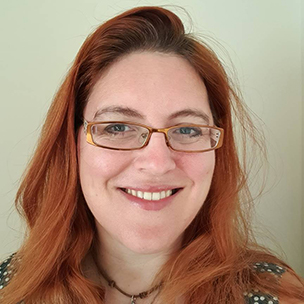
Sarah Callaghan
Editor-in-Chief, Patterns, Cell Press
Sarah comes to Patterns from a 20-year career in creating, managing,and analyzing scientific data. Her research started as a combination of radio propagation engineering and meteorological modelling, then moved into data citation and publication, visualization, metadata, and data management for the environmental sciences. She was editor-in-chief of the Data Science Journal for 4 years and has more than 100 publications. Her personal experience means she understands the frustrations that researchers can have with data. She believes that Patterns will bring together multidisciplinary groups to share knowledge and solutions to data-related problems, regardless of the original domain, for the benefit of humanity and the world.
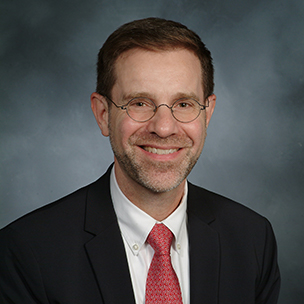
Curt Cole
Chief Information Officer for Weill Cornell Medicine
Dr. Cole is the Chief Information Officer for Weill Cornell Medicine and the Frances and John L. Loeb Associate Professor of Libraries and Information Technology. He is an Associate Professor of Clinical Medicine and Healthcare Policy and Research at Weill Cornell and practices Internal Medicine at the New York Presbyterian Hospital.
As Assistant Vice Provost for Information Services and CIO, Dr. Cole has broad oversight over Weill Cornell’s information services, including the Wood Library, the core IT infrastructure for Weill Cornell, the core software and web development groups, the user support organization, telephony, research informatics, as well as the enterprise applications including research and educational administrative systems, the Enterprise Resource Planning (ERP) and the Electronic Medical Record (EMR). He leverages the integration of these teams and their expertise to underpin the strategic direction of Weill Cornell.
After medical school at Cornell he was a resident then a Clinical Investigator in Medical Informatics at the New York Hospital (NYH). He joined Weill Cornell as the Director of Information Services and later became the Chief Medical Information Officer. Dr. Cole was the co-Director of the CTSC (Clinical and Translational Science Center) Bioinformatics Core for five years and now serves as an Associate Director. He has also worked to develop training programs in Healthcare Informatics and Healthcare Technology and holds an appointment as Innovator in Residence at CornellTech.
His prior research has focused on payor-provider transactional efficiency, terminology services, using the semantic web for research networking, patient safety, and patient portals. His current work is focused on secondary use of clinical data, research informatics, and precision medicine. He is part of the Insight Clinical Data Research Network that is unifying data from the leading academic medical centers in NYC.
Outside of Cornell, Dr. Cole is on the board of the Medicare Rights Center, a consumer service organization that works to ensure access to affordable health care for older adults and people with disabilities. He also serves on the board of Citizens Union, a nonpartisan good government group committed to making democracy work for all New Yorkers.
Getting to Rockefeller University
Hotels in the neighborhood
The conference takes place at the Rockefeller University. Please note that we do not have conference hotels or discounted room rate for this conference.
Closest to Rockefeller University:
Bentley Hotel New York
Hotels in Upper East Side, Manhattan:
Courtyard by Marriott New York Manhattan/Upper East Side
The Marmara Manhattan
The Franklin Hotel
Hotels in Long Island City are 15 min cab ride from the Rockefeller University, on the other side of the East River:
Ravel Hotel Trademark Collection by Wyndham
Z NYC Hotel